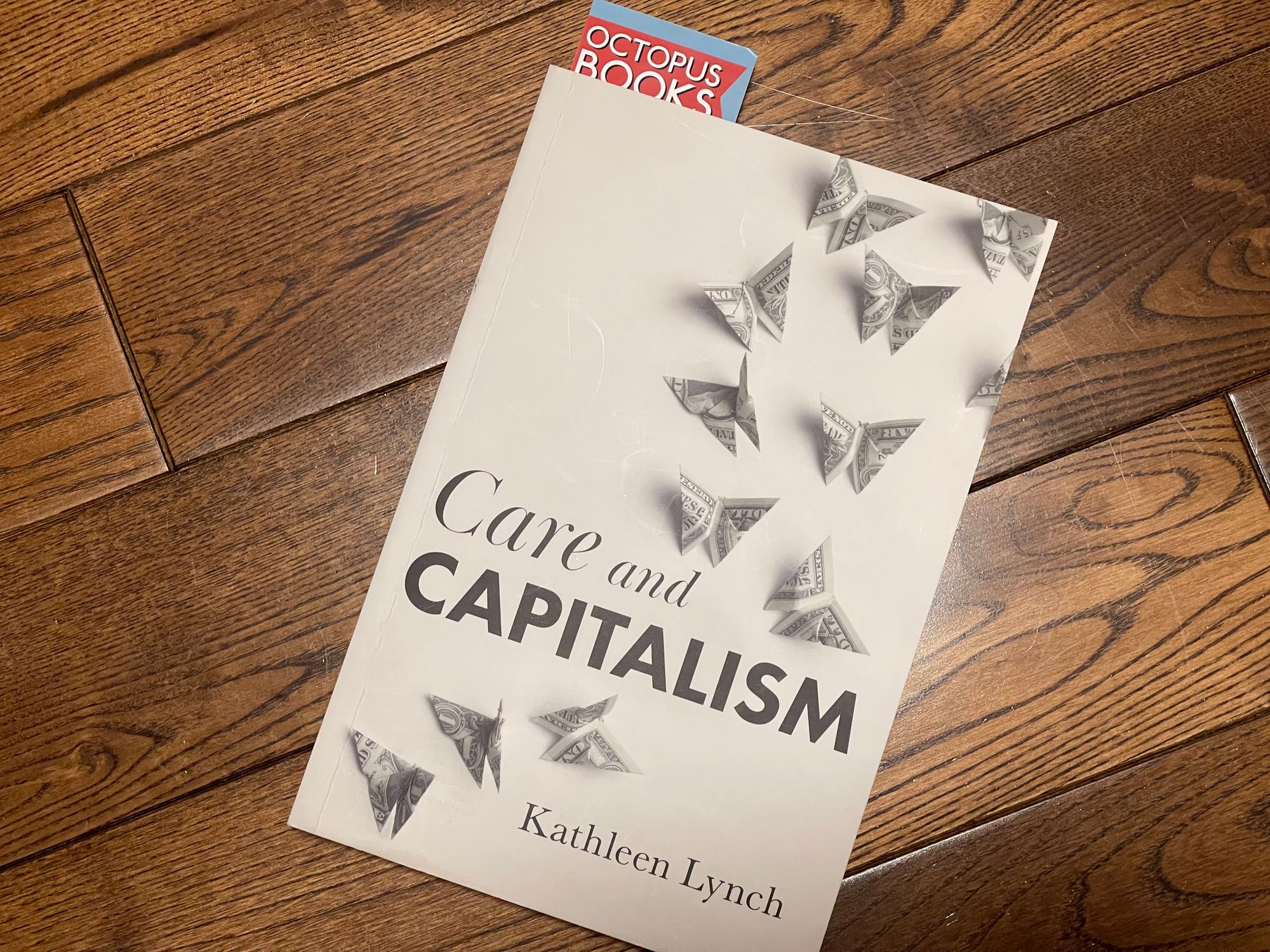
Care and Capitalism (Kathleen Lynch)
The book explores the systematic power dynamics that reward and reinforce some ways thinking, and makes alternative futures increasingly difficult to imagine and realize.
The key theme in the book is (unsurprisingly) care and capitalism, but the key theme that stood out to me is around how relationality (and relatedly, our interdependence) is core to the human experience. Given that each one of us will vulnerable at some point and in need of care, understanding, valuing, and prioritizing this relationality is extremely timely and important.
Loving care matters because it is what produces people in their relational humanity (Oksala 2016: 297) 73
Reading this book has been cathartic to me in how it shines light on many false truisms I remember being taught growing up. In particular, meritocracy around gender, race, and (dis)ability defining who is worthy or not; and the individualistic ideas of self-sufficiency and competition that underpin the legitimization of these inequalities.
People live extensive lives outside the capitalist economy where non-market meaning and values are also materially created, especially through caring. There is scope for developing alternative thinking, new paradigms of justice and social action built around affective relations (Gibson-Graham 1996). If we put capital-labour relations at the centre of all meaning-making (Gibson-Graham, Cameron and Healy 2016: 194), we undermine our capacity to think outside that framework. 33
This perspective was also very timely, as I have been thinking about my identity and sense of worth outside of work. The author dives into the important of acknowledging definitions of success outside of what can be transactioned, and how that makes for developing a better sense of self and identity.
The topics covered aren't light, but the book did give me a sense of hope. In particular it touched on the important of education, both formal and informal. Importantly, it highlights the power of acknowledging, sharing, and practicing care and other-centredness on a day-to-day basis.
The book made realized that I had to a large extent fallen prey to the premise of TINA (there is no alternative). An alternative future is plausible and desirable, and it's a critical time to believe in and move towards it.
Creating knowledge is a relational practice with significant consequences for the shaping of possible worlds (Haraway 1991). 212